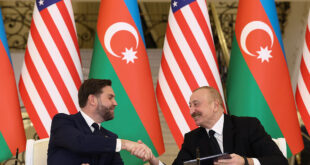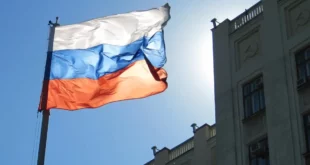 The meaning of Sunday’s Russian parliamentary elections is not to be found in the results. There was never any doubt that Vladimir Putin’s party would take an overwhelming majority. United Russia, with the president at the top of its list, enjoyed every imaginable advantage, legal and illegal. Opposition groups, including my own Other Russia coalition, were denied access to the ballot by meticulous new election laws designed for that purpose.
The meaning of Sunday’s Russian parliamentary elections is not to be found in the results. There was never any doubt that Vladimir Putin’s party would take an overwhelming majority. United Russia, with the president at the top of its list, enjoyed every imaginable advantage, legal and illegal. Opposition groups, including my own Other Russia coalition, were denied access to the ballot by meticulous new election laws designed for that purpose.
The alternatives for voters were mostly Putin supporters or parties that had made deals not to oppose Putin if they were allowed to stay in parliament or on the ballot.
In the first category, count Fair Russia, whose first move after the election was to propose an extension of Putin’s presidency. In the second category are the Communists, who received (or “were allowed”) 11.6 percent of the vote (actually around 20 percent, according to an independent count), for 57 of 450 Duma seats. Communist leader Gennady Zyuganov, who is rumored to have been promised at least 90 seats by the Kremlin for his loyalty, is now making charges of election irregularities. I hate to say I told you so, but ….
Busloads of voters moved from one polling station to the next. There was a dramatic increase in the number of absentee ballots, and some stations reported more ballots than voters.
Perhaps most damning are the official statistics in places such as Chechnya and Dagestan, where there was little monitoring. With an outlandish 99.5 percent voter turnout, 99 percent of Chechen votes went to United Russia. Do not forget: This is a party led by Putin, the architect of the second Chechen war, which razed the Chechen capital, Grozny, less than a decade ago.
As usual, the game was given away by lackeys who are too eager to please their Kremlin masters. One can imagine what the United Russia bosses think of Hugo Chávez losing by 2 percentage points on the same day. Amateur!Â
Meanwhile, even with all the chicanery, United Russia barely topped 50 percent of the vote in St. Petersburg and Moscow. It’s no coincidence that residents of these cities have much greater access to news that is not provided or controlled by the Kremlin.
It was clear that Putin considered these elections important when he gave several frenzied speeches to get out the vote, warning against “enemies within” and “jackals” supported by the West. His language was less Russian than what we might call Putinese. In addition, a week before the elections, our peaceful Other Russia march was broken up by riot police, and a dozen of my supporters and I spent five days in jail after a trial that would have made Kafka blush. (The charge I was jailed on wasn’t in the arresting officers’ handwritten testimony but appeared magically in the typed court version.)
Why bother making such an effort when the Kremlin’s control is so absolute already?
For one thing, Putin’s close relationships with Western leaders serve as a guarantee to his ruling oligarchs that their money is safe. Were he to discard the last vestiges of democracy too blatantly, this cozy situation might end. Only time will tell if this latest charade is enough to keep Europe and other nations from finally taking action, such as turning the Group of Seven back into what it originally stood for: seven great industrial democracies.
The first indications are bad. French President Nicolas Sarkozy wasted no time in calling Putin to congratulate him on his big win. Putin watches such signals from the West carefully, looking for signs of real pressure. Most comments on the elections weren’t favorable, especially in the media, but how much danger could there be if Sarkozy and old buddy Tony Blair called him?
The campaign’s other purpose was to provide the regime with pseudo-democratic cover for whatever machinations it comes up with to keep power after the March 2 presidential elections. The constitution says Putin cannot run again, and he has promised not to change it — if you wish to value the promise of a KGB lieutenant-colonel. After eight years blessed with record oil prices and a compromising West distracted by the “war on terror,” the Putin regime has reached its crisis.
The Kremlin’s presidential candidate must be named soon. Should it be a feeble puppet, soon leading — by “popular” demand or perhaps a health emergency — to Putin’s return? Or can the regime find someone foolish enough to take the blame when the neglected Russian infrastructure and economy finally collapse? Or will it change the system, eviscerating the presidency so Putin can take the power with him to a new role?
After Putin’s friendly visit to Iran in October, I wondered if he was considering a new title for himself, one above the petty responsibilities of prime minister or even the old grandeur of the general secretary of the party: Supreme Leader Ayatollah Putin.
By Garry Kasparov
 Eurasia Press & News
Eurasia Press & News



